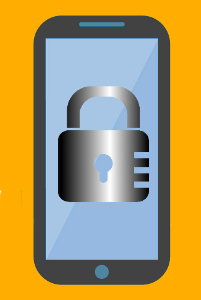 As the trend for better mobile devices continue to grow, businesses are expected to incorporate the use of more tablets and smartphones in the workplace. However, with this growing trend of Bring Your Own Devices (BYOD), many businesses and their employees aren’t showing a high amount of concern or caution when it comes to mobile security.
As the trend for better mobile devices continue to grow, businesses are expected to incorporate the use of more tablets and smartphones in the workplace. However, with this growing trend of Bring Your Own Devices (BYOD), many businesses and their employees aren’t showing a high amount of concern or caution when it comes to mobile security.
The Trend of BYOD
In decades past, many people would often go to a workplace, where a computer may sit on top or underneath a work desk, while a phone would be plugged into the wall and the workday was usually over at 5pm. These days, thanks in part to the invention of the Internet and the ability to be more mobile than ever before, a person’s work computer may very well be their tablet or smartphone, removing the hardline devices that once chained us to the desk.
Bring Your Own Devices is a term designated to those companies that allow for employees to essentially bring their own mobile devices – either a laptop, tablet, or smartphone – into the work place as a company device. This would of course allow for employees to utilize their own programs, while also being able to take their work with them whether it be to lunch or after work. Companies are of course exploring the use of BYOD, with a mid-year survey stating that 61% of companies had their employees using personal mobile devices, with a half companies stating they would be moving exclusively to BYOD in 2017.
While this can be a great boon for employee engagement and morale, it can be a huge security threat for the IT department whose job it is to protect the security and data of both the company and its employees. 51% of employees admitted they would go around company policy that would restrict their use of their own device, regardless if it helped to keep information secure. For many, these policies feel as though the company is trying to keep tabs on them, especially if the activity is not work related.
BYOD & Security
The Information Security Forum identified BYOD trends as a fast growing threat for the workplace, citing both internal and external threats for the devices themselves. The problem with this is that both companies and their employees are not concerned – a 2013 poll by AT&T Small Business discovered that only one quarter were seriously concerned about the security of their mobile devices, a 20% decrease from the previous year. With the year’s issues with data breaches in top companies, it’s a perfect time for both companies and employees to consider mobile security.
Protecting Your Mobile Data
As with the security practices for personal and work computers, the same security measures should be used for your mobile devices. Screen locks and passcodes, those that would prevent someone from gaining access to the phone, are the first lines of defense to protect data on a mobile devices, especially one that is taken to places other than work. It’s not uncommon for people to forget their belongings someplace, even in their own home; more and more smartphones are now equipped with the ability to not only find a phone, but erase data in the case it fails into the wrong hands.
Both Android and Apple phones have the ability to remotely delete data should a phone become lost and unable to be found.
For businesses, the use of single sign on can allow for automated user management, with all apps being kept behind the company’s firewall or other security measurement, giving the IT department access from one SaaS location and allowing users to also have control over their own management and logins. And just like on a computer, it can’t be stated enough how important it is to back up your data on a consistent basis, ensuring that all of your mobile apps and information is saved and able to be accessed should something happen.
